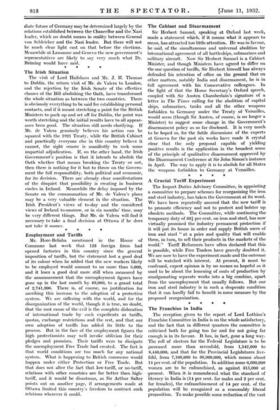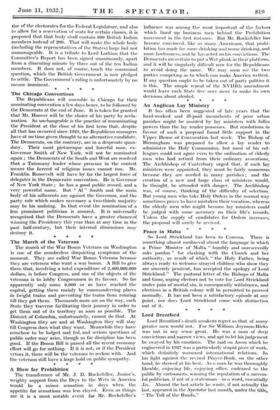The Franchise in India The reception given to the report
of Lord Lothian's Franchise Committee in India is on the whole satisfactory, and the fact that in different quarters the committee is criticized both for going too far and for not going far enough is in its favour. It has, in fact, gone a long way. The roll of electors for the Federal Legislature is to be increased more than sevenfold, from 1,142,000 to .8,440,000, and that for the Provincial Legislatures five- fold, from 7,108,000 to 36,000,000, which means about 14 per cent, of the population. In addition some 0,600,000 women are to be enfranchised, as against 315,000 at present. When it is-remembered what the standard of literacy in India is (ii per cent, for males and 2 per cent. for females), the enfranchisement of 14 per cent, of the population will be recognized as a reasonably liberal proposition. To make possible some reduction of the vast
lize of the electorates for the Federal Legislature, and also to allow for a reservation of scats for certain classes, it is proposed that that body shall contain 300 British Indian members instead of 200. That will make the whole body (including the representatives of the States) large but not unmanageable. It is a tribute to Lord Lothian that the Committee's Report has been signed unanimously, apart from a dissenting minute by three out of the ten Indian members. It does not, or course, touch the communal question, which the British Government is now pledged to settle. The Government's ruling is unfortunately by no means imminent.
* * * *



































 Previous page
Previous page